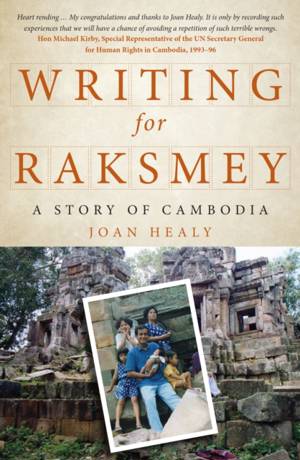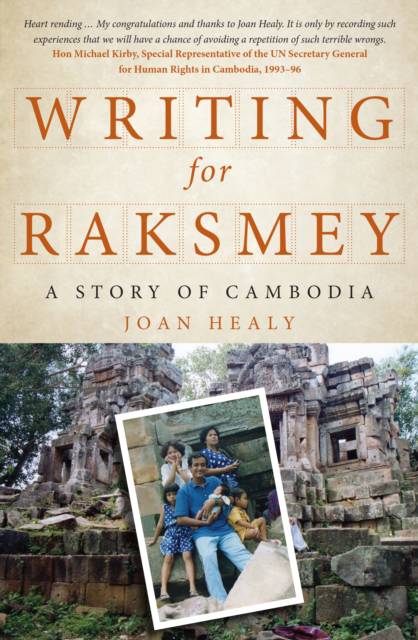
- Retrait gratuit dans votre magasin Club
- 7.000.000 titres dans notre catalogue
- Payer en toute sécurité
- Toujours un magasin près de chez vous
- Retrait gratuit dans votre magasin Club
- 7.000.0000 titres dans notre catalogue
- Payer en toute sécurité
- Toujours un magasin près de chez vous
32,45 €
+ 64 points
Description
Writing for Raksmey tells of the lives of six families who fled the aftermath of the Cambodian killing fields, were held in a crowded refugee camp at the border of their country, and then sent back to a nation still at war. The past is not spoken about but the struggles are not over and the sons and daughters of those who once were refugees sense mystery in their legacy and know it is important to them. Joan Healy lived and worked with these refugees for many years. In response to a young man who said he 'needed to know everything', she has told a story of his troubled homeland, retrieved from the fading pages of her journals and letters. The saga of this quarter century is witness to both a determination to survive and human goodness that was never quenched. Joan Healy's personal, learned, eye-witness account is essential reading for anyone seeking to understand Cambodia. Joan Healy is an Australian who has lived among Cambodians since she began working in a refugee camp on Cambodia's border in 1989. When the population of the camp was relocated back to Cambodia she was invited to mentor efforts to rebuild community in villages divided by civil war. Until 1997 her home was in a village at the edge of Battambang in the war-torn north of the country. She continues to be invited back to Cambodia to facilitate, review NGOs and share her experience of education and human development. Joan is a member of the Sisters of St Joseph. *** "Heart rending ... My congratulations and thanks to Joan Healy. It is only by recording such experiences that we will have a chance of avoiding a repetition of such terrible wrongs." --Hon Michael Kirby, Special Representative of the UN Secretary General for Human Rights in Cambodia, 1993-96 *** "Anna Akhmatova wrote of the millions who perished in Stalin's purges, 'I'd like to name you all by name'. Joan Healy names by name Cambodian survivors of the Khmer Rouge. She was there. The people she introduces us to we won't forget. We have not had a book like this in Australia." --Maria Tumarkin, Univ. of Melbourne(Series: Investigating Power) [Subject: History, Southeast Asian Studies, Sociology, Human Rights]
Spécifications
Parties prenantes
- Auteur(s) :
- Editeur:
Contenu
- Nombre de pages :
- 284
- Langue:
- Anglais
- Collection :
Caractéristiques
- EAN:
- 9781925377125
- Date de parution :
- 28-11-16
- Format:
- Livre broché
- Format numérique:
- Trade paperback (VS)
- Dimensions :
- 152 mm x 231 mm
- Poids :
- 453 g

Les avis
Nous publions uniquement les avis qui respectent les conditions requises. Consultez nos conditions pour les avis.






